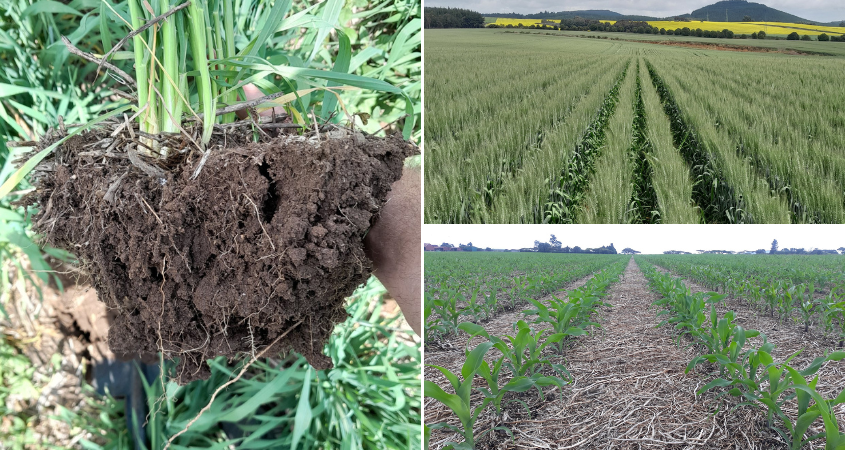
Sustainable soil nutrient management is at the core of environmentally conscious and economically viable agriculture. It involves practices that optimize nutrient use efficiency, minimize environmental impact, and promote long-term soil health. Here are key sustainable practices for managing soil nutrients
Increasing soil organic matter content is a foundational practice for sustainable nutrient management. Organic matter acts as a reservoir for nutrients, improves soil structure, enhances water retention, and fosters a favorable environment for beneficial microorganisms. Practices like cover cropping, crop residues incorporation, and organic amendments contribute to organic matter buildup.
Crop rotation is a time-tested strategy for nutrient management. Growing different crops in sequence disrupts pest and disease cycles, reduces the risk of nutrient imbalances, and promotes overall soil health. Certain crops have specific nutrient needs, and rotation helps prevent the depletion of particular nutrients.
Cover crops, grown during periods when the main cash crop is not in the field, offer a multitude of benefits. They prevent soil erosion, suppress weeds, and, importantly, contribute organic matter upon incorporation. Leguminous cover crops also enhance nitrogen availability through biological nitrogen fixation.
Reduced tillage or no-till practices help preserve soil structure and reduce nutrient runoff. Tilling can accelerate the breakdown of organic matter and contribute to nutrient loss. Minimal soil disturbance under reduced tillage conserves soil organic carbon and promotes a thriving microbial community.
Precision farming technologies enable accurate application of fertilizers based on the specific needs of different areas within a field. Variable rate technology (VRT) adjusts nutrient application rates in real-time, optimizing nutrient distribution and minimizing wastage. This precision promotes efficient nutrient use.
Green manure crops, often legumes, are grown and then plowed back into the soil to enhance organic matter and nitrogen content. Intercropping legumes with other crops provides a natural nitrogen source through symbiotic nitrogen fixation. This practice reduces the need for external nitrogen fertilizers.
Using microbial inoculants, such as mycorrhizal fungi and beneficial bacteria, can enhance nutrient availability to plants. These biological agents form symbiotic relationships with plants, improving nutrient uptake efficiency and supporting overall plant health.
Sustainable soil nutrient management is a holistic approach that considers the health of the soil, the efficient use of nutrients, and the overall resilience of the farming system. By adopting these practices, farmers can ensure the long-term productivity of their fields while minimizing adverse environmental impacts.
Grow more with less
#savesoil #soilhealth #soilscience
Order our services and get to know how to improve your soil for better yeilds.